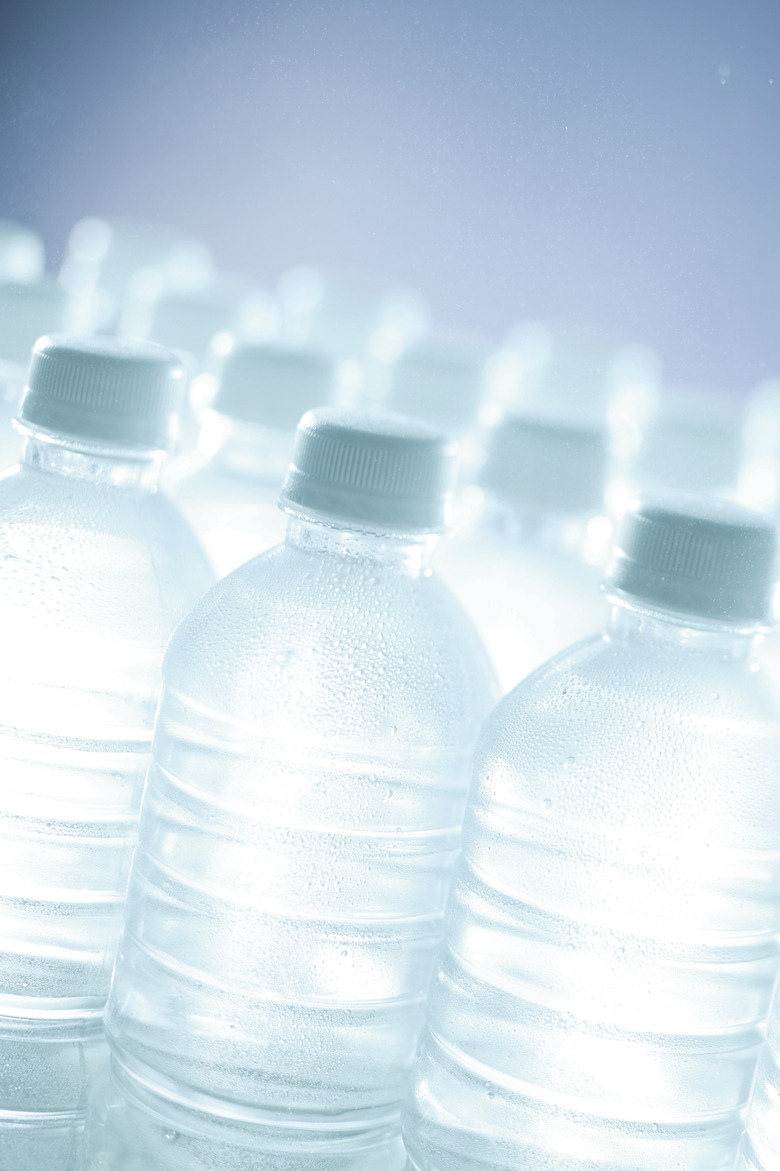Ten Facts About Reusing Cans & Bottles
By reusing plastic and glass bottles and aluminum cans, Americans not only protect the environment, they reduce their carbon footprint while building conservation and stewardship behaviors. So, before cracking open the cap of a new water bottle, consider quenching your thirst using a reusable water bottle instead.
Health Concerns for Plastic
The three R's of conserving the Earth's natural resources are reduce, reuse and recycle. When it comes to single-use plastic water bottles, you may be better off healthwise recycling single-use bottles and getting a reusable drink container for your day-to-day use. Reusing single-use plastic water bottles may carry two health risks. Reusing single-use plastic water bottles can lead to bacterial contamination unless they are washed regularly, and there is evidence to suggest that when cleaning a plastic bottle with hot water, a small amount of the synthetic hormone bisphenol-A is released from the plastic. Studies still need to be performed to show if the amount of BPA that is released is high enough for concern, but there have been case studies linking higher levels of BPA to heart problems, diabetes, sexual dysfunctions and hyperactivity.
Plastic
The next time you pull a plastic water bottle out of the refrigerator, imagine it is three-fourths full of water and one-fourth full of petroleum — that's how much petroleum it takes to make that water bottle. Every year manufacturers use 17 million barrels of crude oil to make the 29 billion single-use plastic water bottles Americans drink. If everyone in the U.S. switched over to using a reusable drinking container for one year, that would save enough crude oil to power a million cars for a year. Another way of looking at that plastic bottle in your hands is in terms of energy: For every plastic bottle you don't use, you save more energy than it takes to power a 60-watt light bulb for six hours.
Aluminum
In 2010, the United States used nearly 1.9 million tons of aluminum in containers and packaging. In 2010, 50 percent of the aluminum beer and soft drink containers were recycled. The main form in which individuals reuse aluminum is through art projects. You can reuse aluminum cans to create an RFID-proof wallet, a fully functioning stove on a camping trip or a source=SFGHG&utmmedium=referral&utm_campaign=8743'>tote bag. When you can't reuse an aluminum can, recycle it. Aluminum is part of a closed recycling loop; it can be continually recycled into new cans. For every can you recycle, you'll save enough energy to power a television for three hours.
Glass
If the potential health risks of reusing plastic water bottles has you down, and steel reusable bottles feel too cold in your hands, consider going with glass. A 2012 EcoFocus survey of about 2,600 consumers found that 8 percent of the consumers used glass reusable water bottles. Americans are also reusing glass in the form of art projects. If you have trouble thinking of creative ways to reuse glass bottles lying around your house, put them in your recycling bin. Glass can be infinitely recycled into new containers without loss of quality, and recycling one ton of glass saves one ton of natural resources. Although the rate of recycling has slowly risen over the past 30 years, only 27 percent of glass bottles were recycled in 2010. The majority of glass is thrown away and ends up in landfills where it never decomposes.
References
- National Geographic Kids: Drinking Water, Bottled or From the Tap?
- U.S. Environmental Protection Agency: Glass
- Virginia Tech: Bottled Water Myths: Separating Fact From Fiction
- The Aluminum Association: Recycling One Can Saves the Energy Used to Watch the Super Bowl
- Maine.gov: Recycling & Reuse Facts
- Recycling Guide: Recycling Facts and Figures
- United States Census Bureau: U.S. & World Population Clocks
- U.S. Energy Information Administration: How Much Electricity Does an American Home Use?
- U.S. Environmental Protection Agency: Aluminum
Cite This Article
MLA
Peters, Rosemary. "Ten Facts About Reusing Cans & Bottles" sciencing.com, https://www.sciencing.com/ten-reusing-cans-bottles-2766/. 24 April 2017.
APA
Peters, Rosemary. (2017, April 24). Ten Facts About Reusing Cans & Bottles. sciencing.com. Retrieved from https://www.sciencing.com/ten-reusing-cans-bottles-2766/
Chicago
Peters, Rosemary. Ten Facts About Reusing Cans & Bottles last modified March 24, 2022. https://www.sciencing.com/ten-reusing-cans-bottles-2766/
